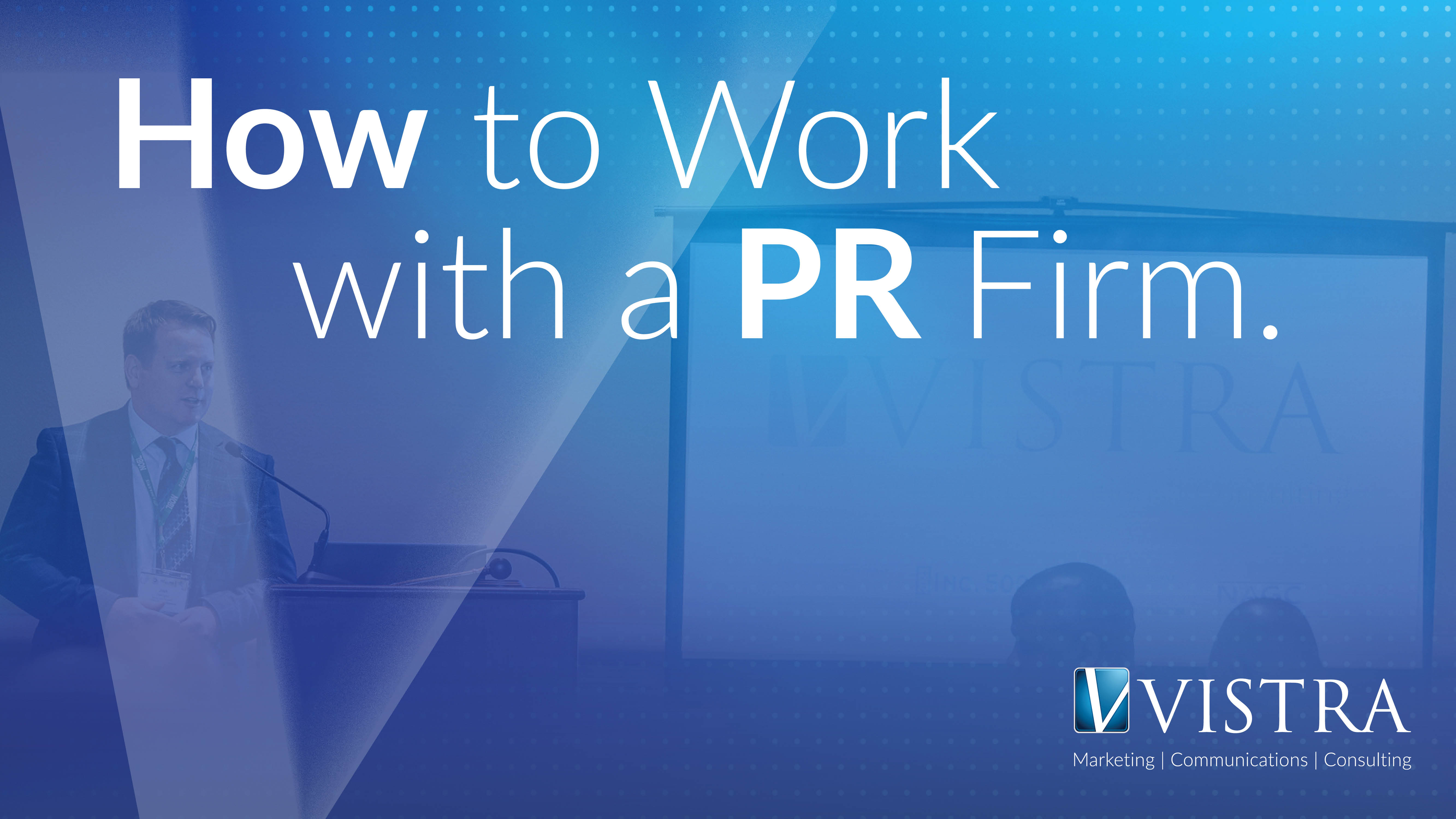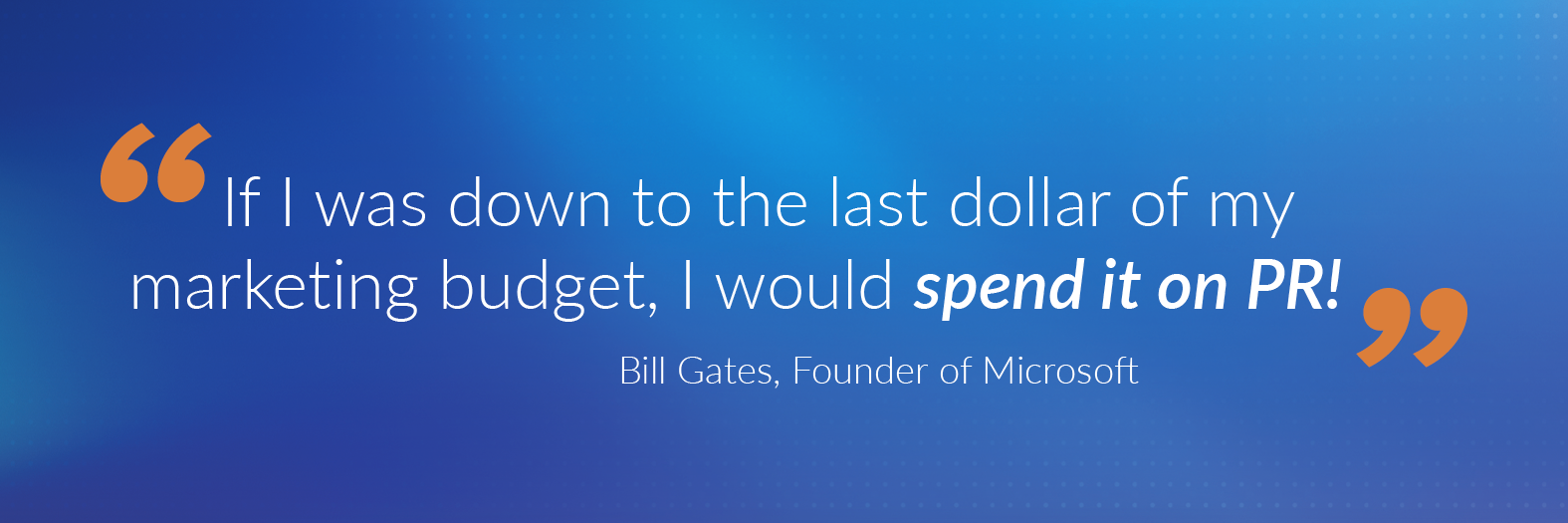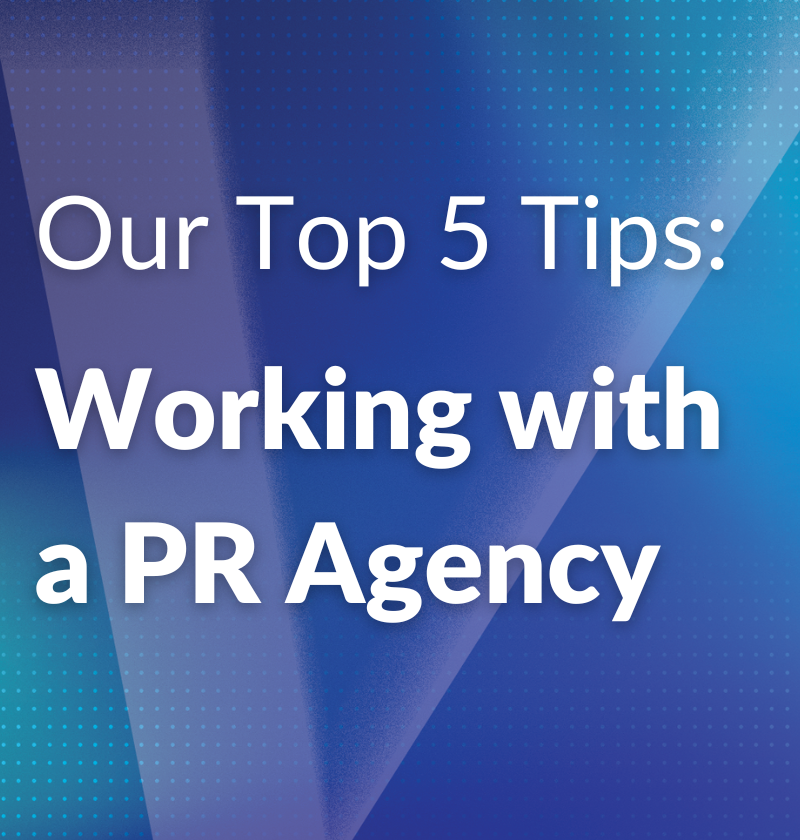
Most billionaires understand the value of public relations. Most also know how to work with PR firms.
Following are five tips on how you can successfully partner with a PR firm. You don’t have to be a billionaire to make the most of your money.
1. Know What Success Looks Like
Why are you hiring a PR firm? What are your goals and objectives? The right agency can help you set goals and objectives and define measurements of success, but the clearer you can be with what you want, the better chance of a win-win outcome for all. Do you want to reach more diverse audiences? Build new partnerships? Bolster your organization’s credibility, reputation? Increase awareness of a product? Persuade people of a certain point of view? Build support for a policy?
Be realistic with your expectations and honest with your capabilities. What is your budget? Do you have someone managing your PR who understands public relations and can work in a partnership to fully realize a firm’s potential to help you?
What are you looking for? Here are some of the common services provided by PR firms:
- Communication plans – Hire experts to help you develop effective communication strategies for long range communication programs and implement short term project plans. U.S. Founding Father Benjamin Franklin famously wrote, “If you fail to plan, you are planning to fail.”
- Reputation management –Build awareness, credibility, and partnerships in your area of expertise. Reach out to experts who understand your messaging needs and can help you make connections. Miracles don’t happen overnight and consistent messaging over the long term will help you weather unexpected storms. As the 20th century actor Errol Flynn, no stranger to scandals, once said, “It isn’t what they say about you, it’s what they whisper.” Going back to the days of ancient Rome, philosopher Pliny the Elder wrote, “It is generally much more shameful to lose a good reputation than never to have acquired it.”
- Crisis management – What to do when things go wrong? Experienced communication experts help you navigate troubled waters and can build bridges faster than a Paul Simon song – they may have already dealt with a similar situation for another client or covered a crisis as a journalist. As the late U.S. President John F. Kennedy said, “When written in Chinese, the word crisis is composed of two characters – one represents danger, and the other represents opportunity.”
- Media relations – Increase positive awareness of your mission, services, products and build relationships to further understanding of your organization. It can be especially important for government entities to maintain relationships with media organizations. British statesman and author Benjamin Disraeli, Queen Victoria’s favorite prime minister, wrote: “Without publicity there can be no public support, and without public support every nation must decay.”
- Social media –Various studies suggest more than 60 percent of adults now obtain much of their news from social media and that number is increasing. If you are not on social media and want to increase awareness of an issue or product and have an impact on the public conversation, you need to be there. If you are already on social media, you may need help in keeping up with the latest trends and platforms. Noting the communications theory about how information voids are always eventually filled, if you don’t tell your story, someone else will, and you may not like it. More than 20 percent of adults have intentionally or unintentionally spread fake news, which spreads faster than true news on social media when content is outrageous enough to grab attention with a kernel of truth and distorted facts.
- News releases – Hire experienced professionals who can write in a way to get your messages published and out to the audiences you want to reach. Journalistic credibility, an attention-grabbing headline/hook, a well-crafted quote, careful attention to detail, and to-the-point writing are key to the success of a news release worth a reporter or editor’s time to read it. Make sure your news releases don’t “speak to everybody and appeal to nobody,” a complaint of Derek Thompson, a staff writer for The Atlantic.
- Outreach – Who do you want to reach and why? An experienced public relations professional can help you determine the best way to effectively reach your intended audience. Communications platforms are constantly changing and what works with older audiences may never reach, much less register with younger generations. Likewise, the latest gaming or social media platforms may not be the best way to reach many senior viewers. Government communications may require security considerations contrary to commercial expectations.
- Event planning –What are your objectives for holding an event? An experienced event planner will help you avoid painful pratfalls to reach your intended in-person and/or virtual audiences. With so many activities competing for attention, you can build an event, but that doesn’t necessarily mean people will come. An experienced event planner can help you field your dreams with a pitch to fill the stands with eager fans.
- Speech writing – Hire experienced speech writers to help make your messaging more effective. Someone who knows how to write in a conversational speaking style customized for YOU to deliver, and help you avoid missteps. A professional won’t let you ask your audience if you can imagine a world with no hypothetical situations, or another word for thesaurus.
- Media training – Hire experienced media trainers with journalism or public affairs backgrounds to help you hone your message, develop answering strategies, and practice your responses. Expert image consultants can help you look, sound, and feel your best. To borrow from an old Saturday Night Live skit, it can be helpful to have someone there to affirm that you look okay and gosh darn it, people like you.

2. Pick a Firm That Fits Your Culture and Needs
The late Pulitzer prize-winning historian and former Librarian of Congress Daniel J. Boorstin provided some insight on types of successful people. “Some are born great, some achieve greatness, and some hire public relations officers.”
It’s important to hire the right public relations officers. A firm with fantastic fashion industry contacts may not be what you need for a government contract. Make sure the firm you hire is a good fit with your culture and goals.
Does the firm have experience delivering the service you need in your industry? There are many firms to choose from and selecting one with a proven track record of success in your industry can be crucial. It also helps lessen the onboard time if the team already speaks your jargon, knows the players/competitors and understands other nuances.
If your budget is modest, you may want to consider a smaller company specializing in your focus areas where your account will be a top priority. Especially for government contracts, you may want or need to engage a contract specialist who can conduct the Request For Proposal (RFP) or Request For Quotation (RFQ) process.
Ask to meet the people who will be working on your account during their pitch and get a feel for their experience and how they think. Are they all qualified for their roles? Does the team have at least one idea that gets you excited? Remember the importance of chemistry. Do you like these people and want to work with them?
3. Be Responsive and Transparent
“A lie gets halfway around the world before the truth has a chance to get its pants on,” a famous quote from Sir Winston Churchill, prime minister of the United Kingdom during World War II. Make sure your PR firm knows the facts before the rest of the world.
Don’t expect mushroom management to produce the best solutions. Keeping people in the dark with inadequate resources is a sure way to waste time, resources, and end up with an inferior product. Give your team the information needed to create comprehensive, accurate communications products that don’t need extensive revisions. Let your team know what you like and don’t like so people don’t have to guess and end up repeating mistakes. Include your team on relevant internal calls, meetings, emails, executive speaking/travel schedules, a spokesperson’s preferences, etc.
To paraphrase the late Martin Luther King, Jr. writing about social justice, “Darkness cannot drive out darkness; only light can do that,” and “There comes a time when silence is betrayal.” Don’t let pesky facts unknown to your promotion partners betray your message or ability to work together.
4. Treat Your Firm as a Partner
Loop your PR partners in on important or helpful information to help make them feel part of the team. Think of what can be shared to improve their work and make them feel like an extension of your organization, committed to your vision and mission. Partners will have a stake in your success and do everything in their power to help you achieve your vision. Challenge your PR partner to be excited about your mission. They only win when you win. But a true partnership is a two-way street. Respect is expected: don’t subject partners to toxic environments or undue, wasteful competition with their competitors, and pay your bills on time, don’t expect unreasonable concessions on budgets.
5. Understand Your contracts and Success Measurements
Changing the scope and nature of your work can cost time and money and result in objectives not being met. Changing performance measures in mid-stream may mean you won’t be able to accurately measure your success, or even areas for improvement. Work with PR and project management professionals to set reasonable expectations to measure success. Noted Management Consultant Peter Drucker wrote, “If you can’t measure it, you can’t improve it.” But understanding those measurements and the goals behind them is imperative. Author Dale Carnegie wrote, “The man who starts out going nowhere, generally gets there.” Put in more simple terms, “If you don’t know where you are going, you’ll end up someplace else” – Baseball Legend Yogi Berra.
Take it from the experts, people who have studied the industry and are paid to understand it. CBSMarketwatch reported about the communications industry during tough economic times, “Historically, PR, Marketing and Advertising budgets are the first to be cut; however, that could be one of the first mistakes a business makes in an economic crisis.”
Successful people understand the value of public relations. Join the billionaire’s club and make the most out of your outreach dollars.
